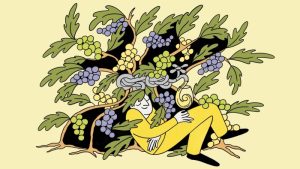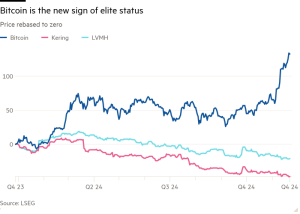Patriot — Alexei Navalny’s fight for a ‘beautiful Russia’, in his own words
Towards the end of his autobiography, Alexei Navalny admits he is struggling to finish it for reasons beyond his control. Prison officials are constantly saddling him with tasks that leave him scarce time to write. The FSB, Russia’s all-powerful secret service, keeps confiscating the drafts he pens by hand.
And having poisoned him once before, they may well do so again. “If they do finally whack me, this book will be my memorial,” Navalny writes. “The book’s author has been murdered by a villainous president; what more could the marketing department ask for?”
Patriot is defined by what Navalny, an anti-corruption activist whose brio, wit and online savvy made him President Vladimir Putin’s most prominent opponent, jokingly referred to as his two deaths. The first one came in 2020, when he was poisoned with the nerve agent novichok in Siberia before a flight to Moscow.
Navalny miraculously survived, and recovered in Germany, where he began writing the memoir, only to return to Russia a few months later. He was immediately arrested, convicted on a series of outlandish charges, and held in increasingly harsh prisons under conditions he said amounted to torture. Most of the book was written from behind bars in notebooks he smuggled out during court hearings or passed on through his lawyer.
As Navalny himself predicted, Putin’s regime didn’t let him finish writing it. He died aged 47 in February this year in “Polar Wolf”, a maximum-security penal colony in the Arctic Circle, not long before he was to have been released in a prisoner exchange. Though the exact circumstances of his death remain unexplained, Navalny’s widow Yulia has accused Putin of ordering his murder to prevent him from being included in the swap, which ultimately went through in August.
This tragic ending looms over the memoir, which is at once a worthy testament to the author’s resistance to Putin and a heartbreaking account of Russia’s collapse into war and repression. Though by definition it feels incomplete, the book is also the best example left to us of Navalny’s defiance, courage, humour, and love for a country he believed could become “the beautiful Russia of the future”.
The ardent, often hilarious raconteur I knew comes through vividly in Arch Tait and Stephen Dalziel’s translation. The book’s composed early sections, written before and in the immediate aftermath of his arrest, give way to a fleeting series of scraps and Instagram posts of prison.
The experience can be jarring, but is an appropriate introduction to what reading Navalny over the years was like for Russians, who first encountered his ribald style through his blog and social media in the 2000s. Online, his perceptive critiques of the Kremlin and corruption investigations could evade censorship.
The book narrates the story of his life, and Russia’s decline, with the same engaging voice and sardonic humour. Many of its best passages cover his early years, where he uses his own life to guide readers through the Soviet Union’s dying days and Russia’s chaotic first capitalist decade.
His father grew up in Ukraine near the Chernobyl nuclear power plant before joining the Soviet missile defence forces and bouncing around garrison towns outside Moscow. The young Navalny spent summers in Ukraine until the nuclear plant blew up in 1986.
FT Edit
This article was featured in FT Edit, a daily selection of eight stories to inform, inspire and delight, free to read for 30 days. Explore FT Edit here ➼
Initially, Soviet authorities pretended all was well, sending villagers, including Navalny’s relatives, to plant potatoes in fields covered with radioactive dust. When the USSR belatedly acknowledged the scale of the disaster and evacuated them, Navalny’s grandmother managed to send a package of dried fish to his parents. When the package arrived, the family measured it with a radiation meter. “It was as if an atom bomb had been dropped on it,” Navalny writes.
Seeing that veil of lies removed proved formative for Navalny, who came to see the Soviet state and its successor in much the same way. Growing up amid the USSR’s demise fostered his innate suspicion of authority figures.
At university, Navalny discovered that the rot that ate the Soviet state had persisted into Russia’s post-communist state. Good grades could be bought with a cash bribe slipped to a professor in an exercise book — a practice Navalny admits to engaging in himself. Soon, he came to believe that Russian law enforcement and criminals were two sides of the same racket. The capitalist reformers in Boris Yeltsin’s Kremlin, for Navalny, were also part of that racket, only on an even larger scale, plundering Russia’s riches and appointing Putin to protect their ill-gotten gains. That, in Navalny’s mind, cost the emerging middle class he belonged to its future.
To Navalny, the former KGB officer Putin was another relic of the hated Soviet Union. “He never stops lying, just as it was in my childhood,” Navalny remembers thinking. “I didn’t want someone like that to be the leader of my country.”
He joined a liberal party, Yabloko, but soon chafed at its “cowardly” aversion to street politics. In 2007 the party expelled him for flirting with nationalism. Navalny explains this away as an attempt to create a broad anti-Putin coalition, and suggests he was kicked out for challenging Yabloko’s moribund leadership. Convinced that Russia’s establishment activists were ineffective, he looked to other means to galvanise the opposition — with himself at the helm.
By 2011, his online tirades against the Kremlin’s corruption became popular enough among Russia’s middle class to spark a protest movement against Putin. The breakthrough came when Navalny devised a formula to make his corruption investigations go viral on YouTube — prompting hundreds of thousands of Russians to take to the streets.
The Kremlin responded with intensifying waves of repression, culminating in his poisoning. Other activists could wilt under the strain. But for Navalny, inspiring others to realise a “beautiful” if vaguely defined vision of Russia with a prosperous middle class and free elections was worth it. During the first of his many trials, his co-defendant asked him: “Do you really think you’re the only one who wants to remain an honest man?”
For Putin, the point of no return appears to have begun in 2018, when Navalny made a quixotic attempt to run for president despite a Kremlin ban. An FSB hit squad began following him on the campaign trail. By this point, Navalny had already made peace with the prospect that Putin could have him killed.

The final third of Patriot is made up of Navalny’s prison diaries. Though he narrates his dire predicament and Russia’s concurrent plunge into darkness with his usual wit, knowing how things end makes this a sobering read.
Initially, Navalny is allowed to make voluminous entries in his diary, inveigh against Putin at his many court hearings, and reply to the thousands of letters from supporters. Yet soon enough he is moved to a prison he describes as a “fascist concentration camp” where the guards psychologically abuse him and deny him medical care. He goes on hunger strike. The diary entries become less frequent, though his good humour and optimism persist. After he speaks out against Putin’s full-scale invasion of Ukraine, the attempts to isolate him become starker. He is held in essentially permanent solitary confinement, which he jokingly likens to a yoga retreat.
In the book’s final passage, written two years into imprisonment, Navalny says he has accepted an unfortunate end. And with Putin’s regime apparently secure, he and Yulia conclude that the Kremlin is likely to have him poisoned at some point. Navalny says he has found solace in religion. “As they say in prison here: they will take my punches for me,” he writes. But with him gone, the “beautiful Russia of the future” seems a more distant prospect than ever.
Patriot by Alexei Navalny, translated by Arch Tait and Stephen Dalziel Bodley Head £25/Knopf $35, 496 pages
Max Seddon is the FT’s Moscow bureau chief
Join our online book group on Facebook at FT Books Café and subscribe to our podcast Life and Art wherever you listen
#Patriot #Alexei #Navalnys #fight #beautiful #Russia #words




